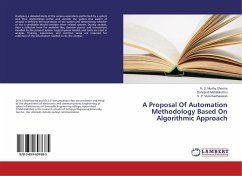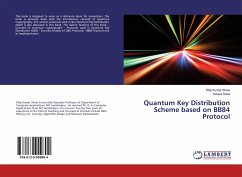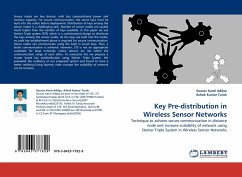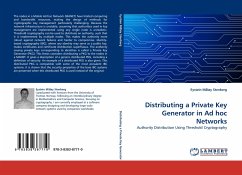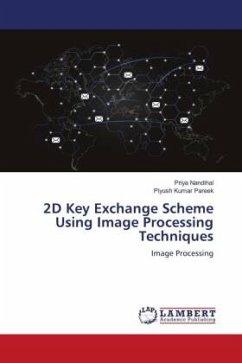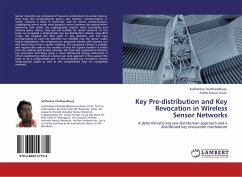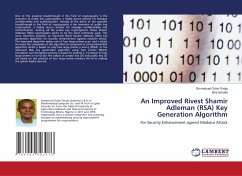
Proposal for New Key Agreement Protocols
Key Agreement Protocols Immune from Quantum Computer Attacks
Versandkostenfrei!
Versandfertig in 6-10 Tagen
32,99 €
inkl. MwSt.

PAYBACK Punkte
16 °P sammeln!
Since Diffie and Hellman proposed the concept of key agreement protocols (KAP) and public key cryptosystems (PKC) in 1976, various KAP and PKC were proposed. The typical examples of KAP and PKC are almost based on the factoring problem of large integers, the discrete logarithm problem over finite fields and the elliptic curve discrete logarithm problem. It is said that these problems are efficiently solved in a polynomial time by quantum computers. This book presents some KAP that are the fundamental cryptographic primitives with enciphering and digital signature for the secure communication. ...
Since Diffie and Hellman proposed the concept of key agreement protocols (KAP) and public key cryptosystems (PKC) in 1976, various KAP and PKC were proposed. The typical examples of KAP and PKC are almost based on the factoring problem of large integers, the discrete logarithm problem over finite fields and the elliptic curve discrete logarithm problem. It is said that these problems are efficiently solved in a polynomial time by quantum computers. This book presents some KAP that are the fundamental cryptographic primitives with enciphering and digital signature for the secure communication. The main issue of this book is the proposal of three new KAP over the non-commutative ring. I attached a simple numerical example of KAP for reader to understand the procedure of making common keys. Three proposed KAP are based on the computational difficulty for solving the multivariate algebraic equations of high degree to be one of NP problems. To break these KAP we probably need to solvethe multivariate algebraic equations of high degree. Then proposed KAP seem to be immune from the attacks by quantum computers. This book is written for graduate students to active researchers.





